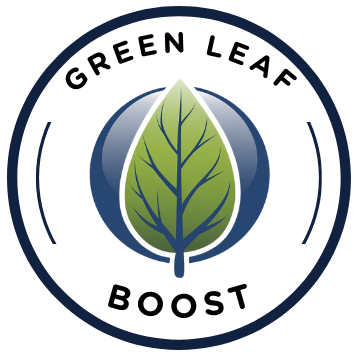Have you ever wondered what role natural supplements might play in helping me achieve my muscle-building goals? It’s a topic that often comes up in fitness circles, whether in the gym or during casual conversations with friends. I find that understanding the ins and outs of these supplements can be challenging, particularly with the overwhelming amount of information available. Let’s take a closer look at the world of natural supplements for muscle building.

Understanding Muscle Building
Before diving into supplements, it’s important to understand the basics of muscle building. My muscles undergo stress during workouts, particularly resistance training. This stress causes tiny tears in the muscle fibers, which then repair and grow larger and stronger during recovery. This process is called muscle hypertrophy, and it’s influenced by various factors including nutrition, exercise intensity, and, yes, supplementation.
The Role of Nutrition
Nutrition is a crucial component of muscle development. I’ve learned that what I put into my body significantly impacts my muscle gain. A well-balanced diet rich in protein, healthy fats, and carbohydrates fuels my workouts and promotes recovery. However, even with a solid diet, I sometimes find it beneficial to incorporate natural supplements to enhance my muscle-building efforts.
What Are Natural Supplements?
At this point, let’s clarify what natural supplements are. Natural supplements are derived from naturally occurring sources. They often contain vitamins, minerals, herbs, or amino acids that can enhance performance, recovery, or overall health. I’ve realized these supplements can give me an edge, especially when combined with proper training and a balanced diet.
Types of Natural Supplements
There are numerous types of natural supplements, and I typically categorize them based on their primary functions for muscle building. Here are the main categories I often consider:
| Supplement Type | Primary Function |
|---|---|
| Protein Powders | Supports muscle repair and growth |
| Amino Acids | Involved in muscle recovery and synthesis |
| Creatine | Improves muscle strength and performance |
| Omega-3 Fatty Acids | Reduces inflammation and aids recovery |
| Multivitamins | Ensures essential nutrient intake |
Protein Powders: The Cornerstone of Muscle Building
When it comes to muscle building, protein is non-negotiable. I like to ensure I’m consuming enough protein daily, as it’s vital for muscle repair and growth. For those days when I struggle to hit my protein intake through food alone, protein powders present a convenient option.
Types of Protein Powders
I often come across several types of protein powders, each with unique properties and benefits. Here’s a quick breakdown:
| Protein Type | Source | Benefits |
|---|---|---|
| Whey Protein | Dairy | Fast absorption, rich in essential amino acids |
| Casein Protein | Dairy | Slow absorption, great for overnight recovery |
| Plant-Based Protein | Various (pea, hemp) | Good for vegans and those with lactose intolerance |
| Egg Protein | Eggs | High-quality protein with a balanced amino acid profile |
Whey protein is my go-to choice for post-workout recovery because it gets absorbed quickly by my body. On days when I’m opting for a lighter option, I might choose a plant-based protein.
Amino Acids: The Building Blocks of Protein
Amino acids are the fundamental building blocks of protein. There are 20 amino acids, 9 of which are essential, meaning our bodies can’t produce them. When I think about muscle building, I often focus on two key types of amino acids: BCAAs (branched-chain amino acids) and EAAs (essential amino acids).
BCAAs: The Essential Trio
BCAAs consist of three essential amino acids: leucine, isoleucine, and valine. I find that taking BCAAs can enhance muscle recovery and reduce soreness after intense workouts. This is particularly helpful for me when I’m increasing my workout intensity.
EAAs: A Comprehensive Approach
While BCAAs are beneficial, I’ve learned that EAAs provide a broader spectrum of amino acids and support more comprehensive muscle protein synthesis. I tend to think of taking EAAs as a way to ensure my body has access to all the necessary building blocks for muscle repair and growth, especially during workouts or when I’m recovering.

Creatine: Supercharging My Performance
Creatine is one of the most researched supplements in the field of sports nutrition, and it’s something I consistently keep in my supplement routine. It’s a compound found in small amounts in animal products and also stored in my muscles. The primary role of creatine is to regenerate ATP, the primary energy carrier in my cells, which can enhance my performance during high-intensity training.
Benefits of Creatine
When I take creatine, I often notice several benefits:
- Increased strength: I typically lift heavier weights during my workouts.
- Improved recovery: I feel less fatigued post-workout and can get back to my routine faster.
- Enhanced muscle mass: Creatine can help increase my overall muscle volume, leading to more noticeable gains over time.
Omega-3 Fatty Acids: Supporting Recovery
While I focus on building muscle, I also recognize the importance of recovery. Omega-3 fatty acids are a type of polyunsaturated fat I like to include in my regimen, as they provide several benefits for both muscle growth and overall health.
Benefits of Omega-3s
In my experience, here’s how omega-3s have helped me:
- Reduced inflammation: They help calm my body after tough workouts, promoting faster recovery.
- Improved joint health: Taking omega-3s helps keep my joints strong and mobile, which is essential for my training.
Multivitamins: Covering My Bases
I’ve frequently heard that a balanced diet should provide all the necessary nutrients, but there are times when I can’t eat perfectly even with my best efforts. This is where multivitamins come into play. They serve as a safety net, ensuring I’m getting all the essential nutrients I need to support my muscle-building endeavors.
Choosing the Right Multivitamin
When selecting a multivitamin, I’m often careful to choose one focused on muscle support. Vitamins and minerals like vitamin D, magnesium, and zinc play important roles in muscle function and hormone production, so I make sure my multivitamin includes these.
Timing and Dosage
As I deepen my understanding of these supplements, timing and dosage become important factors. I’ve learned to use supplements strategically to maximize their effectiveness during my workouts and recovery periods.
Pre-Workout Supplements
If I’m taking supplements before my workouts, I often look for those that can enhance energy and focus. A pre-workout formula enriched with BCAAs or caffeine can help me get the most out of my training sessions.
Post-Workout Supplements
After I finish exercising, I prioritize protein and carbohydrates to kickstart recovery. I typically consume whey protein within 30 minutes post-exercise to support muscle repair.
Potential Risks and Considerations
While I find natural supplements beneficial, I also believe it’s important to acknowledge potential risks. Just because something is natural doesn’t mean it’s without side effects. I make it a point to research the supplements I’m considering and consult with a healthcare professional if I have any questions or health concerns.
Allergies and Intolerances
For example, as someone who is lactose intolerant, I must be cautious when choosing protein powders. There are various options available that cater to dietary restrictions; plant-based proteins tend to suit me well.
Final Thoughts: A Holistic Approach
I appreciate the role of natural supplements in helping me achieve my muscle-building goals, but I understand that they are just a piece of the puzzle. I find that a holistic approach incorporating proper nutrition, consistent training, adequate sleep, and active recovery strategies is essential.
Ultimately, it’s about finding the right balance that works for me. Supplements can complement my efforts, but they shouldn’t replace a solid training regimen and a healthy diet. As I continue on my fitness journey, I look forward to discovering even more ways to optimize my muscle-building process and support my overall well-being. Who knows what I might learn next?

